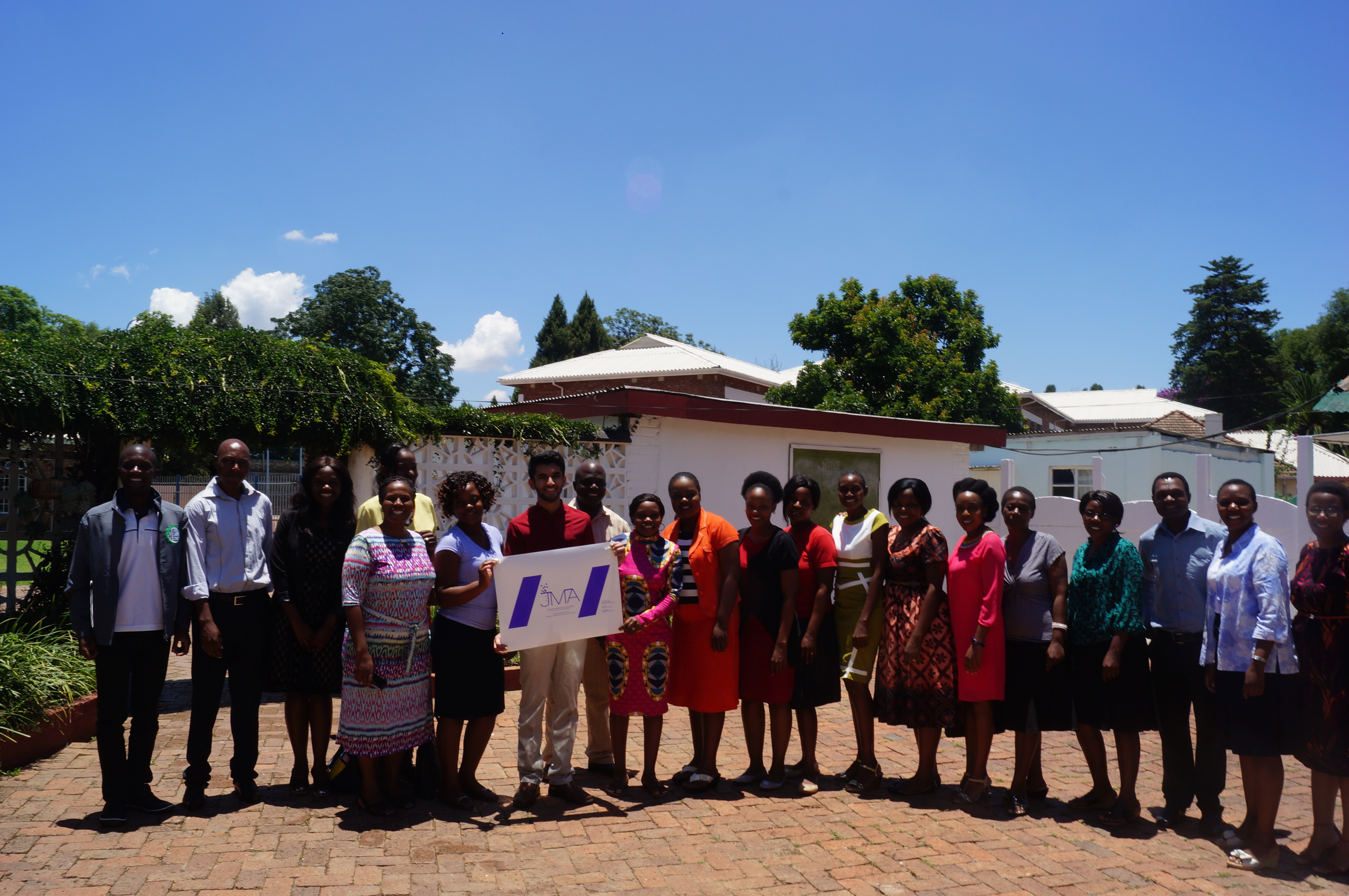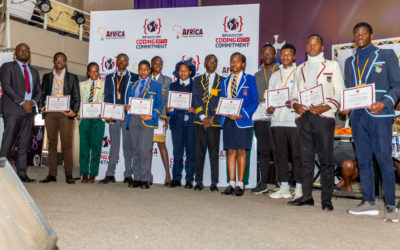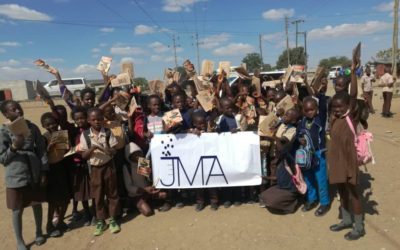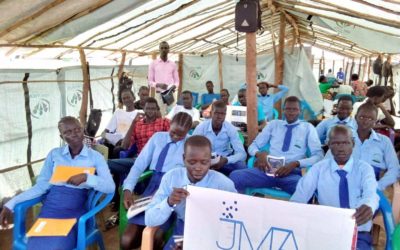HARARE, ZIMBABWE—On Sunday January 1, 2018, Junior Medical Academy (JMA) founder and CEO Reetam Ganguli arrived at Harare, Zimbabwe to meet Zimbabwe Science Fair (ZSF) founder and author of Science: The Golden Road out of Poverty, Knowledge Chikundi, for the purpose of spending three workshop days with the students and teachers of two local schools: Irene Christian College and Happy Primary. On his first day in Harare, Ganguli interviewed Chikundi on his perspective of STEM education, steps he has taken to resolve the education disparities, the points of collaboration between the two organizations, and future endeavors that both parties hope to accomplish.
“If you look at Africa now, we are lagging behind in STEM (Science, Technology, Engineering, and Math) […] and to bridge that gap we need to do more in advancing STEM education,” Chikundi states. “We need to develop Africa, and for development we need to we need to advance STEM as well, because when we advance STEM […] we are [helping] young people come up with innovations and solutions to our pressing challenges.”
In response to this need, Chikundi has created science fairs and two science shows. To maximize the effectiveness of each of the programs designed to inspire young children to pursue science, such events and opportunities have been brought to urban and rural communities.
“[In] some of the most underprivileged communities, […] we perform hands-on science using locally available materials. Then, we also started the Africa Science Buskers Festival, where students, primarily students of Africa, can perform science shows and do presentations. It’s also available to teachers very soon,” Chikundi explains as he walks Ganguli through the processes that compose of his endeavors. “Also, we need to come to create a culture of sustainability in our children, so we also started a Sustainability Gala in Africa [where] students come up with themed projects in sustainability.”
Like Chikundi’s goals for STEM and sustainability, JMA’s main objective is also to galvanize youth within communities of various socioeconomic standings to get involved in science and innovation. Based in Fremont, California, JMA has taught a simplified compilation of biology topics and new technologies in the biomedical field to local elementary schools and homeless shelters, and has outsourced the curriculum and associated activities to other nonprofits, bringing the resources to schools in other countries.
Chikundi comments on the means of collaboration between the respective organizations as he indicates, “Most of our activities is based in chemistry and physics, [and] we don’t have any activities for biology. […] We look at your curriculum, and some of the technology or the topics we can’t find them in our curriculums in the education systems, but they’re very important for our students. [..] I think the partnership will go a long way in inspiring our students to love biology more.”
Both JMA and Chikundi have future goals regarding the dispersion STEM to young students. “Now in Zimbabwe, I know we are going to start in one hundred different schools because we have ten different provinces, so for the pilot, we will start with ten schools in each province, and hopefully we will grow to 9,000 schools in the country,” Chikundi comments as he elaborates on the pilot program between JMA and ZSF. JMA, on the other hand, seeks to establish a sustainable student model in Zimbabwe, which involves the transfer of knowledge between students themselves. Essentially, students who have learned the material will teach the material to other students in other places, following the main process executed in JMA’s local Bay Area chapters, creating a sustainable student leadership model.
“Our partnership will go a long way. Also, because now we can’t just end to inspire students to love science, we also need to support them more, so now, I’m working on to start [an] academy, the Noor Academy, that will grow into a university, and […] you definitely will be a partner,” Chikundi adds when asked about the partnership goals and where he sees the collaboration going toward. “This academy will be starting in 2019 […] and the Minister of Higher Education is fully behind it and supportive of this academy, and we will be starting with some bootcamps for this year.”
Editor’s Note: In 00:06:25-00:06:31, the statistic being used was in reference to South Africa and not Africa as a whole. Find the reference for the statistic below:
Rondganger, Lee. “SA Needs 14 351 Doctors, 44 780 Nurses.” Daily News, Independent ONline, 22 Jan. 2013, www.iol.co.za/dailynews/ sa-needs-14-351-doctors-44-780-nurses-1456417





0 Comments